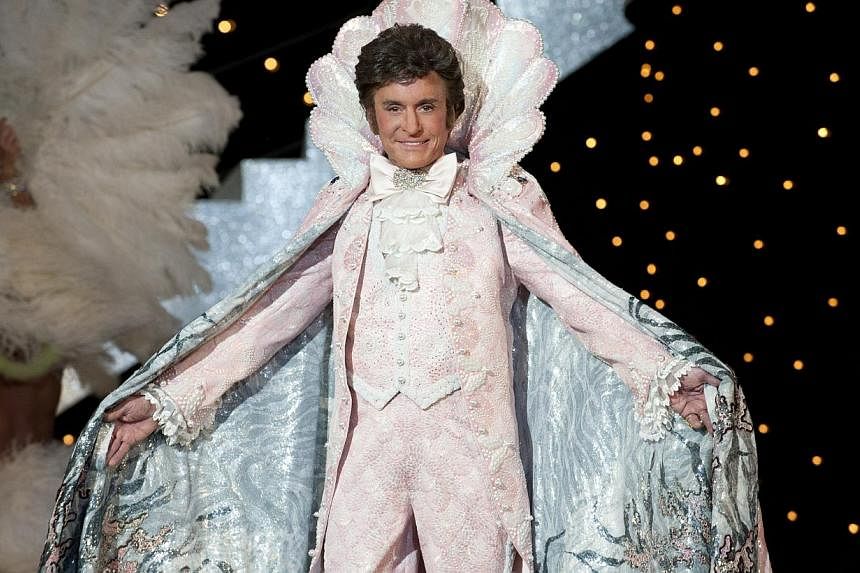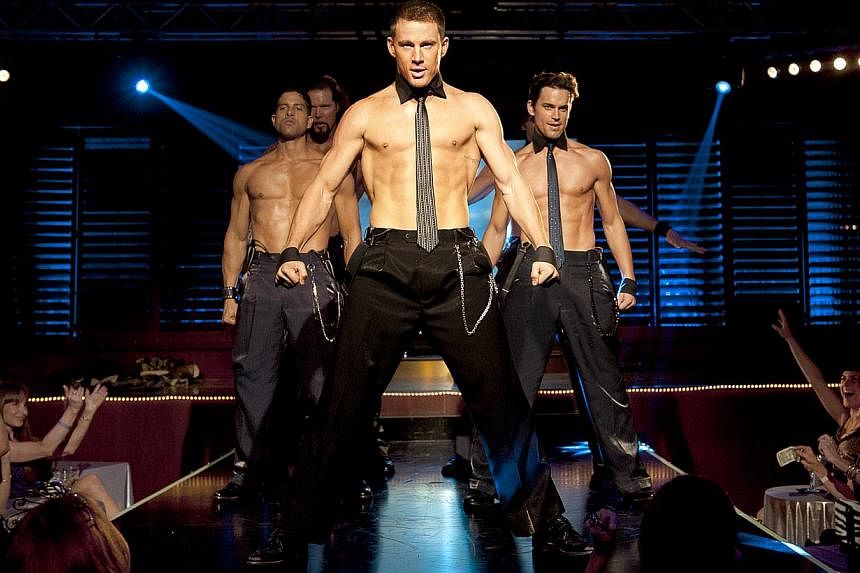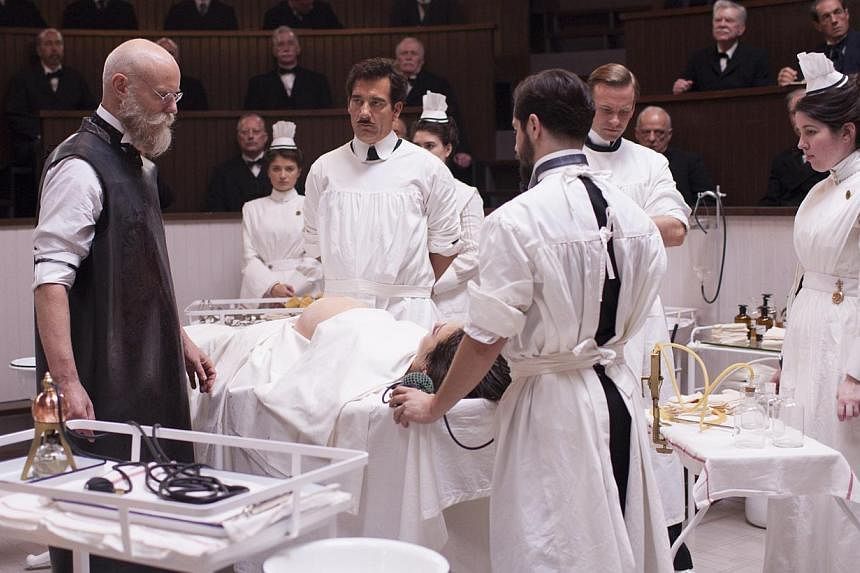"I needed to go somewhere where what I like to do is not viewed as a problem but as a positive... theatre, TV, whatever."
Director Steven Soderbergh on his decision to leave the film industry
It cannot be good news for the American movie industry if one of its leading lights has effectively thrown up his hands and said "I quit".
And after a slightly drawn-out "is he or isn't he retiring" saga, that is what Steven Soderbergh - the Oscar- and Emmy-winning director behind such films as Traffic (2000), Eric Brockovich (2000), Ocean's Eleven (2001), Magic Mike (2012) and Behind The Candelabra (2013) - has now done.
Frustrated by what he sees as the decline of American cinema - which he links to shrinking financial margins and the rejection of quality scripts - he has emigrated to the small screen.
Here, his newest project is the edgy period drama The Knick, starring Clive Owen as a brilliant but troubled surgeon pushing the boundaries of medicine at New York's Knickerbocker Hospital in the 1900s.
Journalists who gathered in Los Angeles to speak to the 51-year-old director and his cast recently got a glimpse of the passion and perfectionism that underpin this unorthodox move.
Owen, like other actors who have worked with Soderbergh, speaks of his extraordinary attention to and mastery of every detail, from the lighting and cinematography to the editing and post- production. In fact, he has been the cinematographer and editor on many of his films, under different names.
He confirms this when he arrives and quizzes Life! and a handful of other reporters about what sort of screen they were shown the pilot episode on.
"On one of these?" he says, looking with concern at one of the hotel's plasma TVs. "Was it bigger than this?"
He has also insisted, unusually, that interviews last at least 40 minutes - twice as long as the usual at such events - and that the groups he talks to be kept small, even if it means speaking with fewer people.
Of course, Soderbergh has never been one to do things by half-measures, jealously maintaining a high degree of creative control over his films, starting with the groundbreaking Sex, Lies And Videotape in 1989, an exploration of sexuality and neurosis that made him, at 26, the youngest person to win the Palme d'Or at Cannes Film Festival and helped launch a new era of independent film-making. And he managed to preserve this strong auteurial voice even when transitioning to more mainstream, big-budget films, including slick crowd-pleasers such as Ocean's Eleven, a star-studded crime caper that earned more than US$450 million worldwide, and Erin Brockovich, a David-and- Goliath tale that won Julia Roberts an Oscar.
But despite being one of the most prolific and acclaimed directors in town - and winning a Best Director Academy Award for the narcotics drama Traffic - he tells Life! he has given up on the film industry following a marked decline in the size, quality and taste of the audience.
"You know, the trajectory is pretty clear, in terms of attendance. And it's not a great business - the margins are really small."
It does not help that the only time risk-averse studios are willing to produce better films is when they are chasing silverware in the run-up to awards season at the end of each year.
Soderbergh says: "When I look at what's going on in the movie business and what's happening with audiences... you can't make people go see things they don't want to see. So if we've reached a point where the only time you can put out movies that are substantive - things that are really going to hold up for 20 or 50 years - is the middle of October to the end of December, you know, that's a development that I can't control."
These and other trends - along with a smattering of personal reasons - got him thinking he needed to bow out and pursue other professional avenues, or at least take a sabbatical, which was how he initially branded his retirement.
The rumblings of his discontent predated his experience of trying to get the industry to back his biopic of the pianist Liberace, Behind The Candelabra.
Starring Michael Douglas and Matt Damon, it was turned down repeatedly for being "too gay" before the cable television network HBO agreed to air it last year.
"In 2007, 2008, my thing was, like, in five years, I'm out. You just feel like it's time for a change. I had set that plan in motion even before my experience with Behind The Candelabra, for which I couldn't even get US$5 million out of a US distributor, and ended up at HBO, where I had a great experience," he says of the film, which last year won two Emmys, for Outstanding Movie and Outstanding Lead Actor for Douglas.
"That to me was confirmation, proof of concept, that the business I used to work in was dead and that I needed to go somewhere where what I like to do is not viewed as a problem but as a positive.
"I decided I'm going to make a move out of this area into something else - theatre, TV, whatever," says the director, who has since taken up an eclectic array of hobbies, including portrait-painting and setting up a company to import his favourite Bolivian brandy, singani, into the United States.
Creatively, he has found refuge on cable television, which he says boasts of "the only growth area in all of the industry - one-hour original programming".
"It's growing fast and everything else is shrinking.
"What I like about television is one of the many things that David Chase did with The Sopranos, which was that he destroyed this idea of a season," he says, referring to the creator of the critically acclaimed mobster drama that ran from 1999 to 2007 and showed that cable TV could rival the film industry in quality.
"He proved we don't have to think like that anymore, that a season doesn't have to start in September and that you don't have to have this many episodes that have to come on every 12 months."
Chase's deft defiance of scheduling and narrative conventions - which led some critics to proclaim the series the best TV show of all time - was nothing short of revolutionary. "He just ignored all of that and made everybody realise, 'If they want to watch the show, they'll watch the show.' And that's a huge thing - to be unshackled from that cage."
And when the script for The Knick crossed his desk, Soderbergh says he "saw an incredible opportunity and I was just really excited about it".
"On the one hand, the medical drama is the most well-established genre in all of television, and on the other hand, I hadn't seen one that felt like this before - it felt like a new take on an old thing."
The series revolves around Dr John Thackery (Owen), a pioneering surgeon who is determined to push medical boundaries in a time when life was cheap and mortality rates through the roof.
Even though it is set at the turn of the century, Soderbergh puts his distinctive, modern stamp on the screen, with handheld camerawork and electronic music, for example, in the startling opening scenes in which Thackery is shooting himself up with cocaine to get through the day.
These are not just stylistic flourishes but deliberately anachronistic, the director tells Life!.
"The thinking behind it was that Clive Owen in 1900 doing that job feels like we do right now. So there was no universe in which I was going to have a stringed instrument or anything analogue on the soundtrack, because I wanted the show to feel like he felt."
Asked if he has watched other period dramas, Soderbergh says: "Well, I've watched enough to know what I didn't want to do. What I didn't want is to have any sort of feelings of nostalgia for that period. With some shows, you can feel this sense, on the part of the people making it, of, 'Wasn't it better then?'
"And I really wanted your initial reaction to be, 'Thank god I don't live in 1900 in New York.'"
One downside of shooting a television series and not a movie, however, can be the longer hours and faster turnaround times involved.
Soderbergh, who is known for working speedily, says his team had just three months to write nine episodes and prepare the show before they began shooting last September.
"And I knew what I was committing to," says the director, who helmed all 10 episodes of the first season and is set to do the same for the second, which was confirmed even before the pilot aired in the US.
"The only problem for me in putting the script down was realising I was going to have to tell my wife that I was not on sabbatical," he says, wryly, of spouse Jules Asner, the 46-year-old former entertainment reporter and E! News host whom he married in 2003.
"And that all this time we were going to have is gone," he says with a smile. "But she understood."
The Knick premieres in Singapore on Cinemax (StarHub TV Channel 611) on Saturday at 10pm. It is also available free on HBO On Demand (StarHub TV Channel 602) from Aug 18.





